The Exclusion of African Voices on Substack and The Fight for Fair Access
A critical discussion on why Substack's promise of empowering independent voices falls short for creators in non-Western regions

For the past two and a half months, I’ve sung the praises of Substack. It’s a platform that has felt like home to my words, offering space for raw, heartfelt reflections, connecting me with readers and a community that I would have not met otherwise.
But now that the dust of newness has settled and I am going into my third month on this platform, and after much thought, it’s time to be honest about the cracks in this space—a space that, while welcoming, holds up the very systems many of us are working so hard to dismantle.
For over a full week, I chased answers from both Substack and Stripe, trying to find out why creators from my continent can’t monetise their work. Why African voices—voices already underrepresented in global conversations—are further silenced by the systems designed to support us. The runaround I received, followed by silence, from Substack, was disheartening but also painfully telling.
How it started…
(I had to win this, it was a battle I did not tire from, could not tire from)
How it was going…
(I was so naively optimistic here)
How it ended…
Substack essentially rewards certain voices while excluding others. And it's not about the quality of work, the passion behind it, or the impact of the stories we tell. It’s about geography—where you live—and, quite frankly, it’s about power. African writers, like myself, are being denied access to a crucial part of the platform: the ability to have paid subscribers. It’s a structural barrier, not a personal one.
Substack’s reliance on Stripe as its payment processor blocks creators from the Global South. We are locked out of the economy of creation, forced to watch from the sidelines as others benefit from the exact same work we pour ourselves into. This isn't just a limitation; it's a reminder of the deep digital divides that persist. It’s a reminder that even in spaces designed for "independent voices,", as alluded to by
on one of their posts, the system still determines who gets compensated and who doesn’t.How can Substack claim to champion independent creators while simultaneously barring entire regions from economic participation? How can we build a world where creativity and thought are valued equally, if we continue to exclude voices based on where they come from?
It’s time Substack lived up to its own ideals and addressed this structural exclusion. Until then, it will remain part of the problem, not the solution.
Whose Art Matters?
The beauty of the internet lies in its promise of a global stage, a space where all voices—regardless of geography—can be heard. Yet, when it comes to rewarding creators for their work, not all voices are considered equal. Substack, as much as it markets itself as a platform for "independent creators," implicitly decides whose art is worthy of compensation. Artists and writers from non-developed countries are often relegated to the margins of the creative economy, their contributions celebrated in rhetoric but not rewarded in material ways.
The very idea that something can be globally accessible but only economically beneficial to a select few speaks to an underlying inequality in the digital economy. We, as African creators, often find ourselves spectators to a creative world we’ve actively contributed to, without reaping any of the benefits. Art is labour, and labour deserves compensation. To deny African creators access to monetisation tools is to deny us access to the global stage in a way that matters—economically.
My audience mostly consists of readers from the US, UK, Europe, and Australia, a truly global mix. But while I can share my words with readers across continents, I’m blocked from participating in the same economic ecosystem that writers in more privileged parts of the world enjoy. In essence, as a South African creator, I’m positioned to reach non-African audiences who could be pivotal in supporting my work, but I’m denied the structural support necessary to turn that potential into material impact for myself.
A Global Conversation—Without Africa?

Much like international artists announcing a “world tour” that often bypasses entire continents like Africa, the so-called global creator economy operates under a similarly limited scope and narrow definition of inclusivity. When platforms like Substack and others speak about the 'creator economy,' they speak of a world that is both global and connected, yet the systems they have built rarely extend beyond the Western hemisphere. It’s a kind of selective globalism that celebrates inclusion in theory, while sidelining entire regions in practice.
The global creator economy is projected to be valued at over $150 billion by 2024, with estimates reaching over $500 billion by 2030. North America, Europe, and Asia hold the largest shares, further highlighting that the monetisation of creative labour remains concentrated in a few regions. This makes participation increasingly unviable for creators in the Global South. What we're witnessing is not a failure of individual creators to be seen, but a systemic issue where the very infrastructure of this economy is NOT designed to accommodate voices outside the West. This structural imbalance prioritises creators within dominant economic zones, leaving the rest behind.
When the conversations and innovations in this space predominantly occur in the West, the consequences for the rest of the world are clear. The business models and technological advances that emerge are tailored to Western contexts, leaving little room for the unique realities of creators in other regions. The creative economy—just like so many global industries—operate on unequal footing, privileging certain voices over others, and ultimately determining who is deemed 'marketable' and whose work gets to be commodified.
For those of us creating outside these developed economies, the delay in gaining access to the very innovations that sustain this economy is disheartening. We are left to wait—sometimes for years—as systems that were never designed with us in mind finally reach us. And even when they do, they are often woefully out of sync with the cultural and economic nuances of African creators. All these critiques have been brought forward by Writer & Journalist, David Adeleke, of
in their LinkedIn article “How to think About Africa’s creator economy” who gave so much nuance and context to this critical, broader conversation.What’s At Stake?
Substack’s reliance on Stripe is a clear barrier for African creators who, despite having the talent, audiences, and creative output on par with their Western Counterparts, are still sidelined when it comes to earning an income. The platform claims to support "independent voices," but it remains silent on the exclusion of entire regions from its payment system—a silence that speaks volumes.
The underlying message here is clear: while the digital stage may be global, the means to benefit from it are still deeply uneven. It's not enough to simply be heard; creators must have the opportunity to thrive within the systems that are profitable for others. And for creators in the Global South, that opportunity continues to be denied.
The issue is bigger than Substack; it’s about the global structures that continue to replicate inequality, even in spaces designed to be open and inclusive. For too long, African creators have been asked to wait, to adapt, and to accept being left out of conversations that deeply affect us. But the time for waiting is over. The digital divide is not just about access to the internet—it’s about access to the economic opportunities that the internet can provide. Substack, like many platforms, has the potential to be a force for change. But until it addresses these barriers, it will remain a part of the same system it claims to disrupt.
What Many Others Are Saying and Have Been Saying…
A fellow writer who refuses to sit and watch while we are forcefully relegated to the sidelines,
If you found value in my words and believe in the importance of amplifying underrepresented voices, consider buying me a coffee. Your support helps me continue creating and sharing stories that challenge systems of exclusion and bring African perspectives to the global stage. Every bit helps me to keep showing up and being heard in spaces that aren't always designed for us.


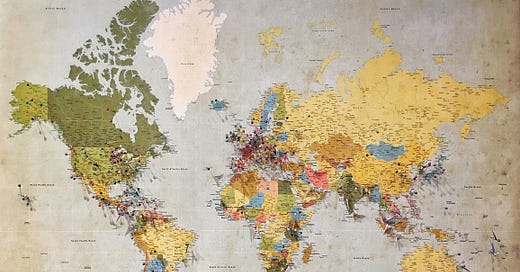


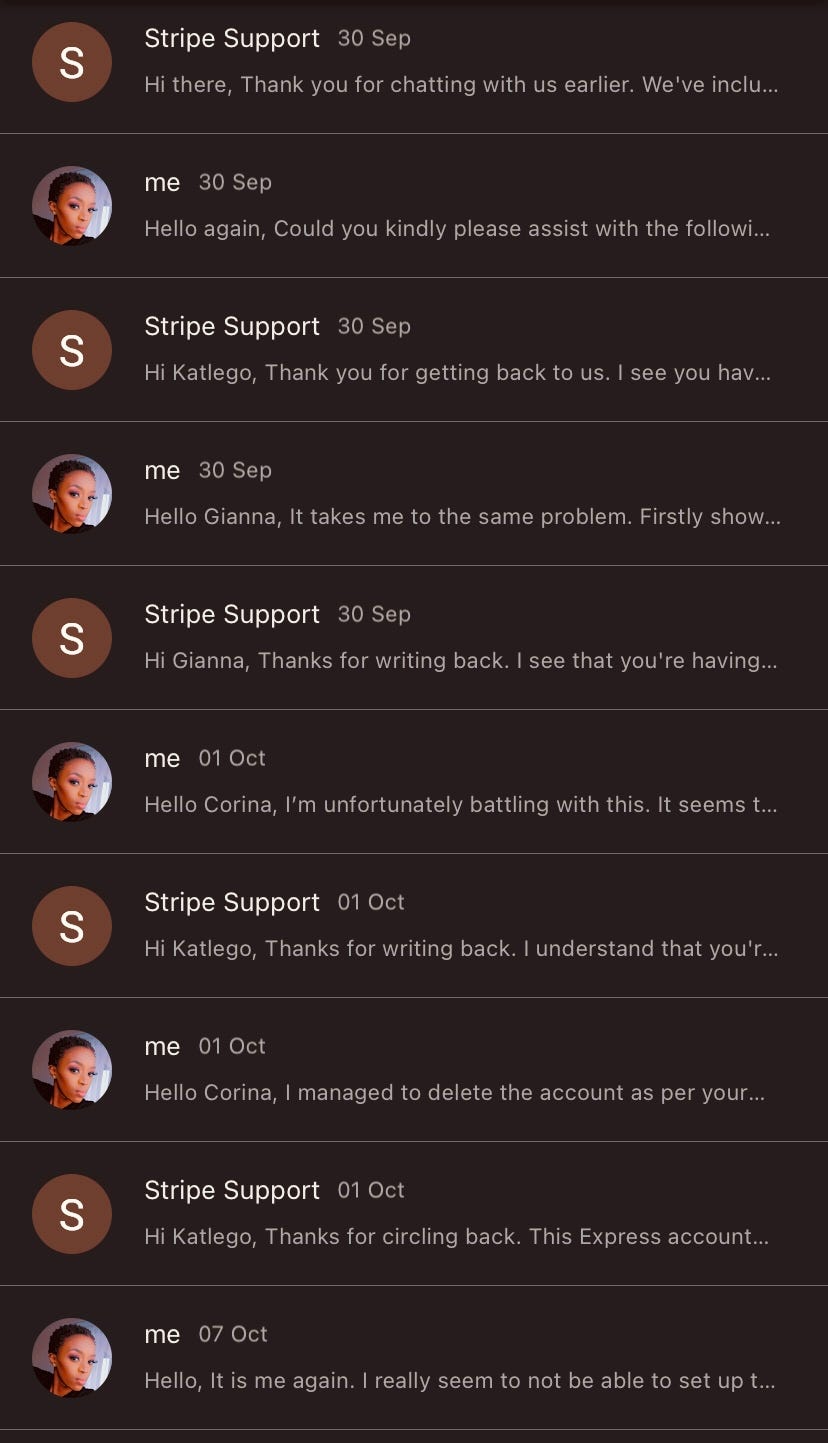
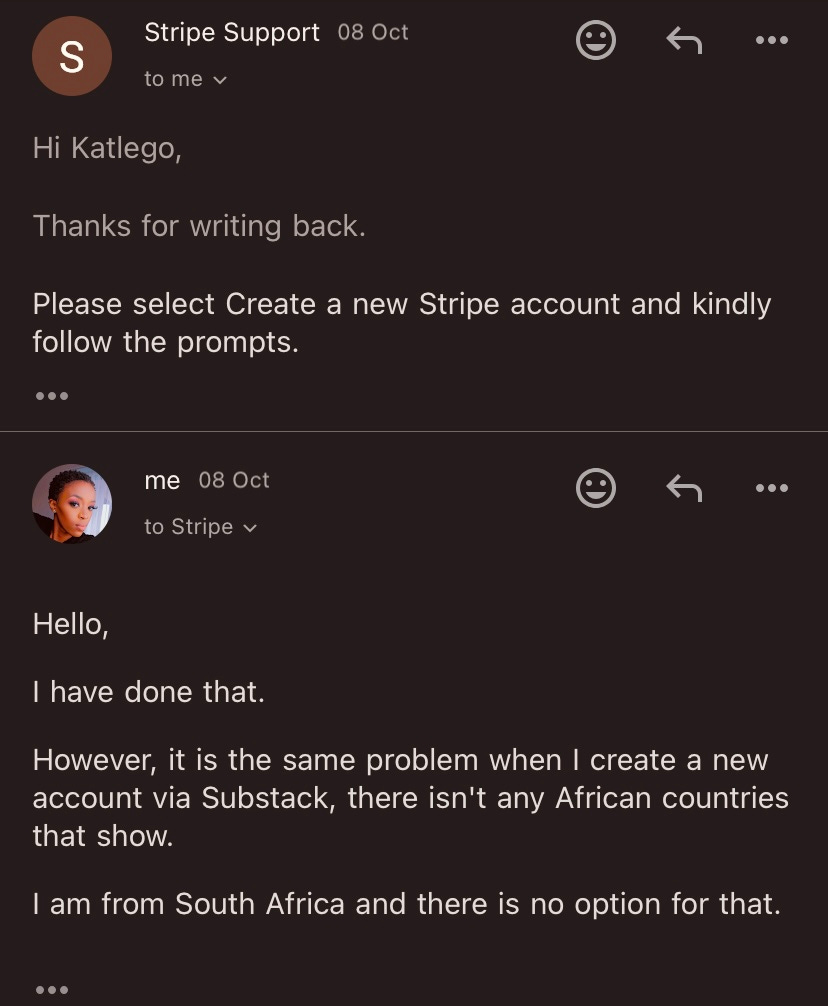
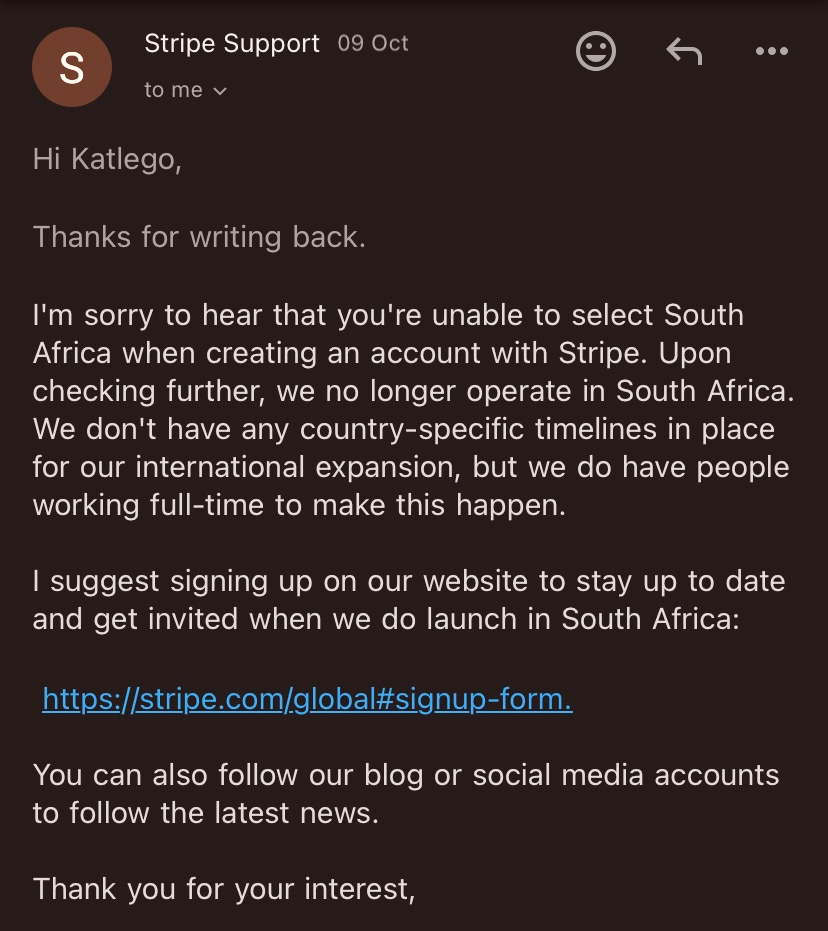
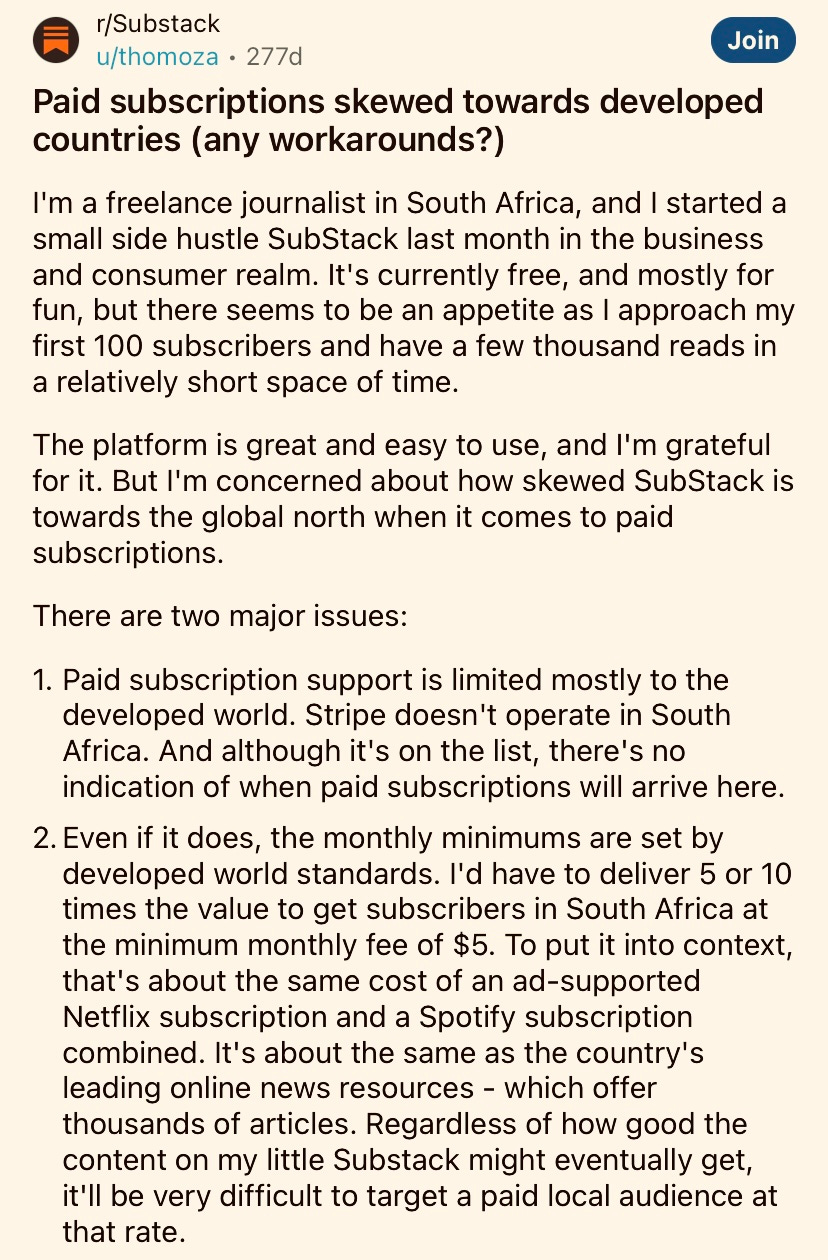


This part - "How can Substack claim to champion independent creators while simultaneously barring entire regions from economic participation? How can we build a world where creativity and thought are valued equally, if we continue to exclude voices based on where they come from?" 👏🏼👏🏼
Thank you SO much for writing and sharing. I didn't even know this was happening. Truly unacceptable.
Thank you for sharing this! I hope that if enough of us say something, we’ll see a change. I also wanted to note that (very frustratingly), Stripe Connect pays out on buymeacoffee to African creators and I have received no answers as to why that can’t be an alternative for Substack. Thank god Patreon uses PayPal. It’s just ludicrous to exclude entire continents, not just Africa, from the entire USP of your platform.